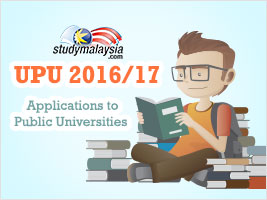Allied health professionals in Malaysia to be regulated under new act
by on October 17, 2016 | Top Stories

If you're currently studying a allied health course, do note that a new act will soon come into effect to regulate several professions in this field, terms of registration and practising certificate requirements.
On 4 February 2016, the new Allied Health Professions Act 2016 (AHPA) received royal assent and is expected to come into force early 2017. The primary purpose of this Act is to regulate the registration and practice of these allied health professions.
These professions are largely categorised into three groups:
- clinical (12 professions)
- public health (four professions)
- laboratory work (seven professions)
Presently, there are 23 job titles in the list of allied health professions that will be regulated under the AHPA. It includes:
|
|
Under the AHPA, the Malaysian Allied Health Professions Council will be established to regulate these allied health professions. The AHPA will also be responsible for issuing practicing certificates.
The AHPA requires all persons covered by the Act to be registered as an allied health practitioner within 12 months after the Act comes into effect; they may not practise unless they have registered with the Council. To qualify for registration, one must possess a recognised qualification and have not been convicted of an offence involving fraud, dishonesty or an offence punishable with imprisonment for more than two years. In addition, the Council may also determine other prerequisite requirements that need to be fulfilled as part of the registration process.
Subsequently, a registered practitioner may also apply to be registered as an expert if the criteria laid out by the AHPA and the Council are met. This includes, amongst others, the attendance of a specialised training relating to his allied health profession in a recognised training institution, and a recognised qualification awarded by a recognised training institution.
In addition to the registration requirement, a practitioner must also apply to the Council for a practising certificate which will specify the address of the practitioner’s principal place of practice and all other places of practice of the registered practitioner. A practising certificate is valid for a period of two years, and renewal is also subjected to an assessment of competency.
Sources for this article include:
- Allied Health Professions Act 2016 expected to come into force early 2017
- Sin Chew Daily, 8 October 2016, page 19
You May Also Be Interested In...
15 hot courses that didn’t exist in the 1990s
![15 hot courses that didn’t exist in the 1990s - StudyMalaysia.com]() These courses definitely didn't exist in your grandparents' ...
These courses definitely didn't exist in your grandparents' ...Are you an international student?
![Are you an international student? - StudyMalaysia.com]() If you’re planning to study a bachelor’s degree at a private highe...
If you’re planning to study a bachelor’s degree at a private highe...5 Best Scholarship Opportunities In Malaysia
![5 Best Scholarship Opportunities In Malaysia - StudyMalaysia.com]() Nowadays, Malaysia is one of the leaders in international education by...
Nowadays, Malaysia is one of the leaders in international education by...�Step UP with an Education in STEM
![�Step UP with an Education in STEM - StudyMalaysia.com]() If you're thinking about going for a career in science, technolog...
If you're thinking about going for a career in science, technolog...Reopening of University Campuses for 2021/2022 Starting From 15/9/2021
![Reopening of University Campuses for 2021/2022 Starting From 15/9/2021 - StudyMalaysia.com]() All universities in Malaysia, both public and private, are planning to...
All universities in Malaysia, both public and private, are planning to...UPU 2016/17 Applications to Public Universities Open Now
![UPU 2016/17 Applications to Public Universities Open Now - StudyMalaysia.com]() Applications to public universities, polytechnics, community colleges ...
Applications to public universities, polytechnics, community colleges ...































